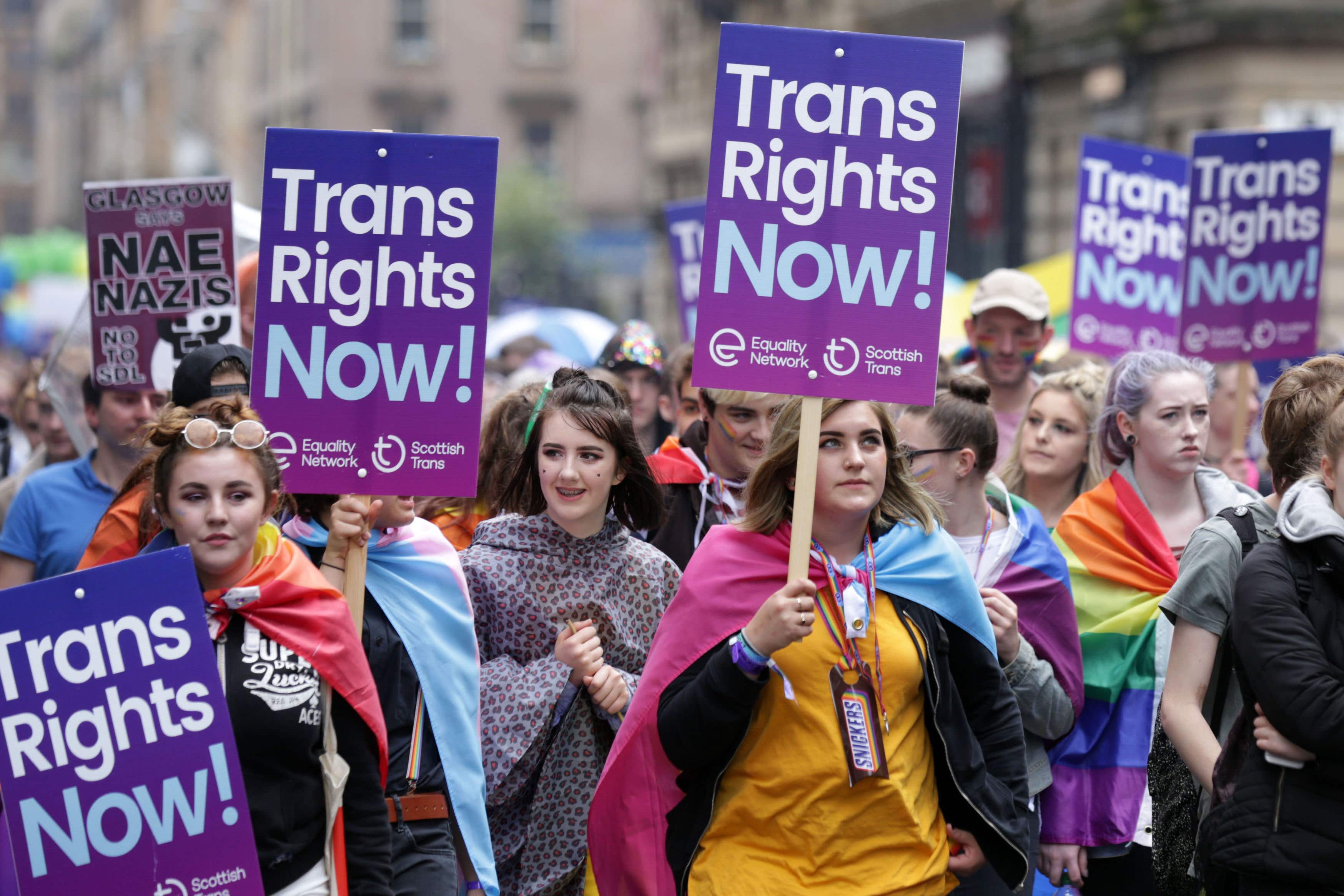Gender recognition Bill passes stage one as minister quits
MSPs backed the Gender Recognition Reform (Scotland) Bill after Ash Regan quit the Scottish Government.

MSPs have voted to back the general principles of a controversial piece of gender legislation as one of Nicola Sturgeon’s ministers quit over her opposition to it.
In the stage one debate of the Gender Recognition Reform (Scotland) Bill, the legislation passed by 88 votes to 33, with four abstentions.
The Bill will remove the requirement for a medical diagnosis of gender dysphoria when seeking a gender recognition certificate (GRC), while also reducing the length of time an applicant must live in their acquired gender from two years to three months, with an additional three-month reflection period.
The minimum age for applying will be reduced from 18 to 16.
Groups representing women and girls have raised concerns over safety if the Bill is passed in its current form, but proponents – including Scottish Government ministers – have rejected the claims.
The legislation also led to a ministerial resignation, with community safety minister Ash Regan quitting on Thursday in the hours before the debate in Holyrood.
Writing to the First Minister, Ms Regan said: “I have considered the issue of gender recognition reform very carefully over some time.
“I have concluded that my conscience will not allow me to vote with the Government at the stage one of the Bill this afternoon.”
In a terse response, the First Minister said “at no stage have you approached me… to raise your concerns” about the Bill.
“As you are aware, a key requirement of the ministerial code is collective responsibility – a principle essential to effective governance, and which applies across all matters of government policy irrespective of the issue,” she said.
As well as Ms Regan, fellow SNP MSP John Mason said he would not back the legislation.
Speaking in Thursday’s debate on the Bill, Social Justice Secretary Shona Robison said: “We know from extensive consultation, as well as from evidence heard by the Equalities, Human Rights and Civil Justice Committee, that many trans people find the current system overly medicalised, complex, intrusive and invasive.
“These barriers are currently preventing many trans people from applying for a GRC. This Bill will make the process simpler, more streamlined, and more respectful of the privacy and dignity of trans men and women.”
She added: “As a Parliament, we have a responsibility to protect and support minority groups.”
Ms Robison also announced the government’s intention to bring an amendment at stage two that would seek to speed up the process for anyone diagnosed with a terminal illness.
But Scottish Tory MSP Rachael Hamilton – a member of the committee and one of the key voices in Holyrood against the Bill – said the rights of trans people could be improved but there was a requirement to protect “vulnerable young girls and the hard-won rights of women and girls”.
Ms Hamilton went on to say that “legitimate concerns” around the Bill were being ignored.
“The Bill received one of the highest volumes of written evidence in the history of the Scottish Parliament – we’ve heard 11,000 submissions – and much of those contributions were overlooked in the (committee) report,” she said.
Ms Hamilton went on to say there could be a balance struck in reducing the length of time trans people have to wait to get a GRC while also leaving some safeguards in place.
“There is room to make the process easier without tearing it to pieces,” she told MSPs.
Scottish Labour MSP Pam Duncan-Glancy said the current process for obtaining a GRC is “dehumanising, intrusive, offensive, expensive and lengthy and needs to change”.
“(Labour) have always been at the forefront of equality and human rights and we always will defend and protect them,” she said.
Ms Duncan-Glancy added that the process proposed in the Bill “is not just long overdue or compliant with international best practice, it is essential for a society that believes in equality and human rights and it is the right thing to do”.
Scottish Lib Dem leader Alex Cole-Hamilton said the Bill’s process had been a “long and painful road”, adding: “At its core, this legislation is about human rights, it’s about respecting the dignity and the autonomy of transgender people who have been waiting far too long for these reforms.”
Bookmark popover
Removed from bookmarks